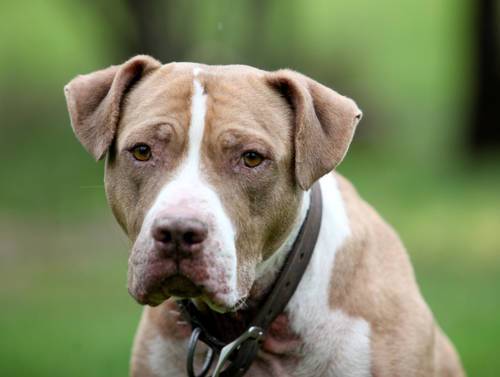Understanding and Successfully Treating Canine Lung Cancer
There are two type of lung cancer diagnosed in dogs. Primary lung cancer is defined as tumors that originate in the lung tissue. This type of cancer is rare and often consists of a single tumor. Carcinomas are the most common type malignant tumors and develop from the epithelial tissues in the lungs.
Metastatic lung cancer originates elsewhere in the body and has spread to the lung via the bloodstream. This is much more common and unfortunately is considered more serious, due to that it’s commonly found in multiple nodes rather than a single mass.
Due to the fact that lung cancer typically has spread from another region, the types of cancers can vary. A diagnosis to determine what kind of cancer cells must be performed in order to assess the treatments options that are most effective on that specific type of cancer cell.
 Adenocarcinoma is an aggressive malignant neoplasm that makes up about 75% of all primary lung tumors in dogs, and has the ability to spread rapidly through the body .
Adenocarcinoma is an aggressive malignant neoplasm that makes up about 75% of all primary lung tumors in dogs, and has the ability to spread rapidly through the body .
Main Causes for Primary Lung Cancer in Dogs
Because metastatic lung cancer has spread to the lungs from another area of the body, the causes vary greatly and can’t be isolated.
Causes for primary lung cancer in dogs is often attributed to much of the same as lung cancer in humans. Second hand smoke, asbestos and other urban contaminants are considered factors, however research has not been as thorough as with humans, therefore it’s still considered “unproven”.
 Dogs that live in urban environments, as well as dogs that are exposed to secondhand smoke have higher rate of incidence.
Dogs that live in urban environments, as well as dogs that are exposed to secondhand smoke have higher rate of incidence.
Diagnosis
Properly diagnosing lung cancer in dogs can consist of multiple procedures such as a complete blood profile, chemical blood profile, a blood count and X-rays, ultrasounds,CT scans or an MRI.
Fine needle aspirate of lung mass and a biopsy may also be utilized to help determine the type of lung cancer present.
An MRI can also help determine if the tumor has metastasized to other parts of the body.
Prognosis
Dogs with metastatic lung cancer are usually given less than 12 months to live, some treatments may increase the survival time, but generally not more than a few months.
Conventional Treatments for Lung Cancer in Dogs
Conventional treatments offer 3 types of procedures for treating carcinomas; Surgery, chemotherapy and radiotherapy.
The protocol, or combination of protocols, will depend on the stage of the disease as well as, size, location, and whether metastasis has occurred.
If only a single tumor is present and complete surgical removal is possible, additional treatments may be avoided.
Even if remission is not likely, chemotherapy and radiotherapy are often used to improve the quality of the dogs life as well as help extend it’s lifespan.
Holistic Treatments for Lung Cancer in Dogs
Holistic Veterinarians and health practitioners seem to have a little better understanding of the philosophy of “treating the patient” not just the disease. They tend take into account the unique circumstances of that particular dog, as well as what’s leading to the illness or disease.
A tumor or any disease is the result of an underlying issue (the cause). That issue needs to be addressed in order achieve and maintain remission. This along with promoting the body’s ability to heal itself, are the main aspects of holistic approaches.
It’s important to understand that many conventional treatments do have some undeniable benefits, but they also have their limitations. To fully realize their potential, they must combined with a holistic approach that promotes health as well. Otherwise, the initial cause and the bodies ability to heal itself are constantly working against the treatment.
The body has a remarkable ability to heal itself. In fact, it’s only the body and the immune system that can heal itself. This fundamental aspect of nature must be recognized and honored by promoting its ability to heal. Only then do we have the highest chance at attaining and maintaining remission.
The proper diet with powerful immune boosting herbs and cancer fighting supplements offer the best to address and alleviate the underlying causes of lung cancer in dogs, while promoting healthy cell recovery.
Just as the improper diet can cause complications that lead to disease, a holistic cancer diet treatment can work to help reverse those issues.There has been some cases where hemangiosarcoma has been slowed down and even gone into remission with holistic treatments alone. As with many types of cancer, it’s hard to find a case of a dog beating the odds, where diet wasn’t a main component.
Is it a Case of Faulty Genes?
In the vast majority of cases, absolutely not. Some types of cancer are more common it certain breeds and dogs with shorter noses are more predisposed to lung cancer. However, it’s important to understand that predisposed does not mean predetermined! Genetics are a factor, but there are many other factors as well.
For cancer, or any disease to develop, a dysfunction in the immune system must be present. So by addressing this area, we can greatly reduce illness regardless of what genetic challenges a certain breed has.
All that being said, when a breed is more predisposed, this simply means that when something is challenging the immune system, this is the weakest link that we often find the effects first. Shorter nosed are considered to have a harder time filtering out contaminants.
Many dogs have these same “weak links” and go on to live a healthy full lives, while some unfortunately do not. Genes are merely blueprints, and it’s how well these these blueprints are properly built upon and maintained that makes the difference.
External factors such as dietary complications and toxins are a main factor in affecting the digestive tract and immune system, which are directly linked. This intern allows for the cells to be altered and cancer to develop.




